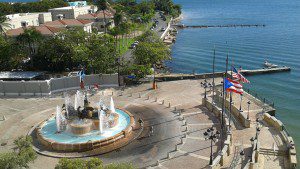________________________________________________________________
The Commonwealth of Puerto Rico has been an intriguing part of the United States since Spain relinquished this former colony after the Spanish-American War in 1898. Perhaps the only reliable characterization of Puerto Rico’s political status is that the U.S. has ultimate sovereignty over the Caribbean archipelago comprised by Puerto Rico, Vieques, Culebra, Mona and smaller islets.
Puerto Rico’s legal system is a fascinating amalgamation of Spanish substantive civil law and U.S.-based evidentiary, procedural and constitutional law.
The Puerto Rico Supreme Court still looks to civil law commentators from Spain and other countries sharing the civil law tradition in deciding civil law disputes. The Commonwealth courts conduct all proceedings in Spanish. With one exception concerning local antitrust law, only criminal matters are tried by jury. Commonwealth courts decide all other cases by bench trial.
Puerto Rico has an Article III federal district court under the appellate jurisdiction of the First Circuit Court of Appeals seated in Boston, Massachusetts. Federal law and procedure apply in the same way as in the U.S, unless they expressly state otherwise. Supplemental “Commonwealth” civil claims can be tried by jury. Because juries are believed to make larger awards than judges conducting bench trials, some observers feel that there is an incentive to couch actions as federal claims.
Licensed in Puerto Rico and bilingual, David Martin represents parties and provides local counsel services in federal and commonwealth court cases. The firm will help stateside and foreign lawyers with initial ECF filing, complying with local rules, handling pendent civil law claims, monitoring deposition interpretations and document translations, and other matters. Client relationships are fully respected.




